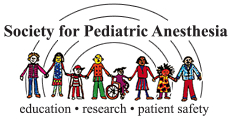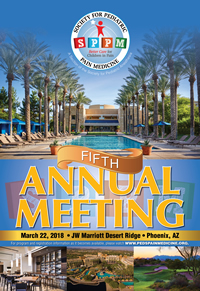GA3-68
Anesthesia and Neurodevelopment: Do Parents Want the Topic of Anesthetic Neurotoxicity to be Discussed During Anesthesia Consent?
Hayes S, Ward C
Children's Hospital of Philadelphia, Philadelphia, PA, United states
Introduction: While some animal studies suggest that anesthetics are capable of causing neurodevelopmental and behavioral deficits, it remains unclear if such studies are relevant to humans. Recent literature including the GAS and PANDA studies suggest that a single exposure to anesthetics has no obvious neurodevelopmental consequence to the tested variables. However, the effect of prolonged or repeated anesthetic exposures in children is unknown. In December, 2016, the FDA issued a safety statement that prolonged or repeated use of anesthetics in children younger than three years may affect brain development. In light of unclear evidence, many anesthesiologists do not routinely discuss the possible effect of anesthetics on neurodevelopment. In this study, we aimed to characterize the attitude of parents towards the discussion of anesthetic neurotoxicity as part of the consent process.
Methods: A survey was given to all parents at the monthly meeting of the Family Advisory Council (FAC), an organization of caregivers with children who are currently or previously in the CHOP network. FAC Members were given a written survey that read: “As a parent, would you want CHOP to proactively mention the idea of anesthetic neurotoxicity (addressed in the FDA Safety Announcement) during the anesthesia consent process, or should we (anesthesia providers) continue to only address this issue if asked?†Participants responded yes or no, and were allowed to provide written comments.
Results: The survey was completed by 37 members of the Family Advisory Council. Thirty respondents (81%) felt that anesthesia providers should routinely discuss the FDA safety announcement about anesthetics and neurodevelopment during the consent process.
Discussion: The majority of parents on the CHOP Family Advisory Council felt that the potential effect of anesthetics on neurodevelopment should be discussed as part of the consent process. Respondents commented that “full disclosure†was preferred, and that information should be shared “without needing to be asked.†Among the seven respondents who preferred not to discuss the FDA statement with an anesthesia provider, two commented that a written handout summarizing the FDA statement should be available. Most parents on the advisory council expressed that because the “FDA is highlighting†the issue, they would prefer their anesthesia provider to be proactive and provide more information.
Conclusions: Although many anesthesiologists do not routinely discuss the possible effect of anesthetics on the developing brain, our results suggest that most families would prefer proactive discussion about anesthetic neurotoxicity as part of the consent process.
Top











